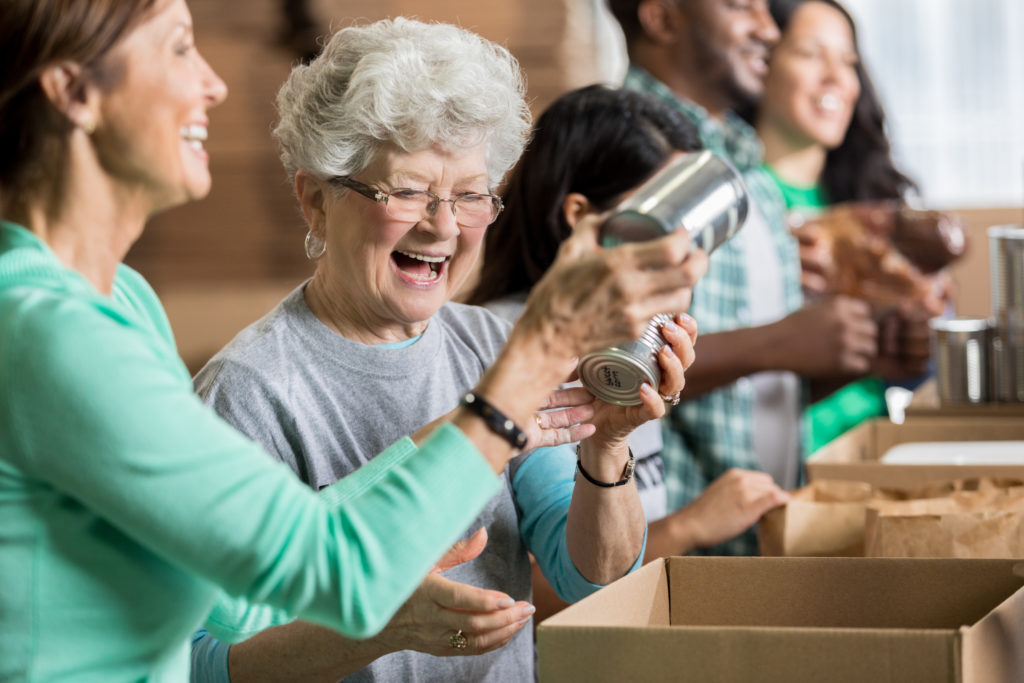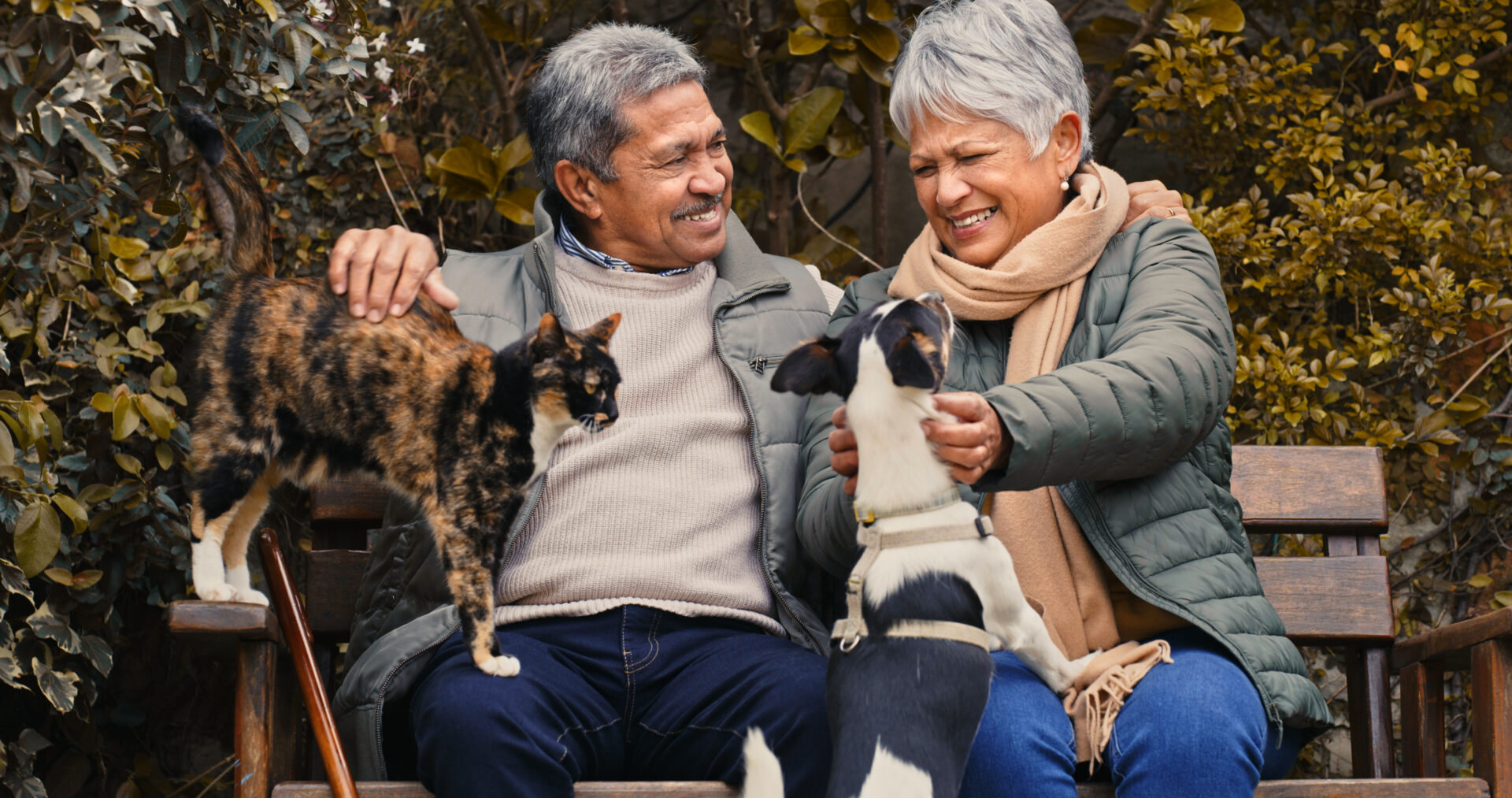Good Benefits of Owning a Pet for a Senior
Now more than ever, more adults are choosing to spend their golden years aging in place. Aging in place can come with many changes; the loss of our independence and quieter social lives leave many aging adults lonely and prone to depression. But, you or your loved one can find comfort and meaning in this new stage of their life by owning a pet.
Research shows that there are numerous benefits to owning a pet as you age in place. Keep reading to learn about these benefits and other pertinent information that will help you decide if owning a pet during your golden years is right for you.
Physical Health Benefits of Owning A Pet
Owning a pet as you age in place can promote a healthier lifestyle and a general sense of physical well-being.
Pets Promote Healthier Lifestyles
Research shows that pet owners engage in healthier lifestyles than those without pets. Dog-owners especially are more likely to take daily walks, contributing to an overall healthier body. Lower blood sugar, lower blood pressure, and better cardiovascular functioning are just a few senior health benefits of owning a pet. In addition, pet owners are even more likely to engage in healthier diets than others.
Pets Help with Pain and Stress
The National Poll on Healthy Aging has researched the impact of pets on their aging in place owners. A recent study indicates that 79% of aging adults find stress-relief in their pets, and about 34% of elderly pet owners indicate a reduction in pain around their furry friends. Additionally, sleep and inflammation improve with the presence of a pet.
Improves Memory
Psychiatrists have researched the impact of owning a pet on memory, and all signs point to their presence being beneficial. Therapy pets are commonplace in psychological treatment centers, but the benefits can extend beyond the therapist's office. Owning a pet improves memory recall, memory retention, and improved mental cognition in the owner.
Emotional Benefits of Owning A Pet
Aging in place with a pet by your side can contribute to better emotional health. Individuals suffering from social isolation are 30% more likely to die within the next seven years. But, owning a pet can reduce isolation and the resulting effects it has on aging in place individuals.
Reduces Loneliness
Over 40% of aging in place individuals experience loneliness, but they often find solace in their pets. Owners play and talk with their pets. In fact, 57% of pet owners admit to confiding in their pets and finding comfort in doing so.
Reduces Isolation
Owning a pet improves sociability and human connection in aging individuals. Recent studies show that 65% of aging in place individuals believe that their pets help them connect with other people. This belief may be because of daily walks and providing a shared connection with other individuals.
Provides Focus On the Present
It is easy to become overwhelmed by the thoughts of the future or be consumed by pain and stress. However, owning a pet is proven to help owners focus on the present and reduce their worries about the future.
Accepted in Senior Living
And when it does become time to consider other housing arrangements, many senior living communities accept pets. There may be some size restrictions, and pet owners must be able to care for their pet, but many senior living communities recognize the value and benefit of seniors with pets. Call us when your senior is ready to make a move to find out what local locations accept pets. We can help!
Things To Consider Before Getting A Pet For Your Senior
While owning a pet comes with many benefits for aging in place seniors, there are some essential things to consider before adopting a pet.
- Physical Demands of Owning A Pet
- Individual Housing Situation
- Costs of Owning A Pet
- Disease and Injury Complications
- Consider Future Home Needs
Final Things to Consider on Pet Ownership For Aging Adults
As you consider bringing home your own furry, feathered, or gilled friend, consider the benefits of owning a pet and weigh them against the responsibilities and costs they come with. Then, take the time to find the right pet for you by asking local adoption agencies and shelters. With a bit of research and patience, you'll find that owning a pet can provide a sense of meaning and happiness in an uncertain and changing time of an aging in place senior's life.
Five Benefits of Volunteering in Retirement

Volunteering your time and energy helps strengthen your community, but it also has important emotional and physical benefits.
This month we take a look at how retired adults can reimagine aging through volunteering. With new studies being done, we are finding more and more benefits linked with volunteering, specifically when volunteering after retirement.
According to a study done by the Corporation for National and Community Service, Americans over the age of 60 that volunteered reported lower disability and higher levels of well-being compared to those who did not volunteer.
Below are the top five reasons retired adults should volunteer:
Helps bridge generation gap.
By interacting with younger generations, seniors are able to share important life lessons. On the flip side, younger generations are able to teach seniors new ways of looking at life. By building a connection with each other both generations are able to offer the respect and affirmation that humans crave.
Volunteering time makes you feel like you have more time.
Giving others your time can make your time feel more affluent. A study done at Wharton College found that people who give their time felt more capable, confident and useful. Since they were able to accomplish one thing, they feel they will easily accomplish tasks in the future. So, even though realistically they have less time, they feel as though they have more time. Similarly, those who donate their money feel like they are wealthier.
It’s good for mental health.
Volunteering keeps the brain active, which contributes to a person’s cognitive health. The National Institute on Aging reported that participating in activities that are meaningful and productive may lower the risk of dementia and other health problems in seniors.
Helps prevent senior isolation and depression.
While getting out of the house is important at any age, research found that volunteering can have positive effects on a person’s psychological health. In a study done by the Corporation for National and Community Service, researchers found that individuals who engaged in volunteering activities experienced a shorter course of depression than those who did not volunteer. Volunteering provides the senior a sense of purpose and accomplishment.
It promotes physical activity.
Physical activity remains an important role in positive health outcomes through the oldest ages. Whether that activity is helping with a local sports team or walking around your neighborhood while volunteering as a companion, maintaining a healthy level of fitness helps fend off diseases as you age.
And if you are thinking about senior living options, many larger communities have a full time resource responsible for planning and coordinating the activities of residents. Often, this includes creating options for residents to volunteer, and the community often includes transportation to facilitate your volunteer activities.
Find an activity you’re passionate about. Volunteering is best for all parties involved when you are doing something you enjoy. It’s never too late to get started. Whether you just retired or are in your later years there is an opportunity out there for you.
PRO-TIP
Did a senior citizen you know serve in World War II, or the Korean or Vietnam wars? Did they teach, volunteer, raise kids or do something to make the community a better place? Why not say ‘thank you’ to them, just to make them feel like they are still appreciated. Bring a pretty bunch of flowers to brighten their day. Or make a hot meal for them. ‘Thank you’ is so easy to say and it costs very little. Try it out, you might just feel good too!





